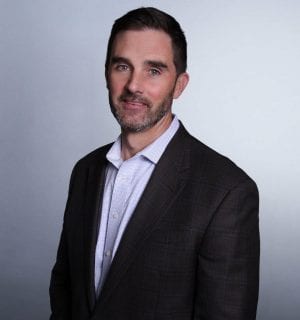News and Insights
Is it Time for Brands to Appoint a Chief Expectations Officer?
August 25, 2020
It used to be that consumers expected brands to offer a great product at a great price with a pleasant customer service experience. Consumers certainly expected these businesses to operate in a responsible way, and, for the most part, trusted the brands they supported were doing just that.
As we all know, times have changed. Advances in technology, demands for transparency, and the always-on nature of how we communicate are just three factors that have added to a long list of new or heightened expectations over the past decade.
Consider for a moment just some of the things consumers expect from brands today:
- On-demand convenience
- Real-time customer support
- Personalized service
- A seamless cross-channel shopping experience
- Protection of their personal data
- New products and services based on customer needs and new technology
- Safe working conditions for employees
- Environmentally responsible operations
- Helping customers improve their own environmental footprint
- Taking a stand on and speaking out about cultural and social issues
- Diversity in advertising
- Addressing racial inequality and supporting LGBTQ+ inclusion
- Using their influence to impact political issues
- Giving back to their local community
- Articulating values through their customer touchpoints
- A rapid, transparent response to missteps or crises
A quick online search of this topic produces dozens of articles, blog posts, research reports and surveys highlighting what’s driving these expectations and predicting this list will continue to grow. How are brands supposed to keep up?
This raises the question: Is it time for brands to appoint a Chief Expectations Officer? While it can be argued this responsibility rests with the Chief Executive Officer, or is a shared responsibility across the C-Suite, does the complexity of meeting dynamic, always-evolving consumer expectations call for a different approach?
Speaking of complex and dynamic, COVID-19 and protests for racial justice are current examples where companies have been called on (and called out) to meet the expectations of the moment, and are judged by consumers and other stakeholder groups based on their ability to do so. What new expectations will brands be asked to meet 10 weeks from now? What about 10 months from now?
Companies have been adding senior-level positions to address specific expectations for years, including roles such as Chief Sustainability Officer, Chief Diversity Officer and Chief Experience Officer. With consumers paying attention to what companies do and say like never before, brands can no longer afford to meet these expectations in silos. Why? Because the growing list of expectations is becoming more challenging to meet every day. This reality is pushing brands to take a horizontal view of their impact.
With expectations likely to keep growing, brands need to understand which ones align with their values and truly matter to their customers, and then put measurement mechanisms in place to ensure they are delivering on those in meaningful ways across the organization. Therein lies the argument for a Chief Expectations Officer.
Whether you agree with the need or not, it is clear brands need to think differently about which expectations they are going to meet, and the impact that meeting or missing those expectations will have on the health of their brand and business. After all, a brand’s reputation is ultimately driven by how it defines expectations, not how it responds to them.
